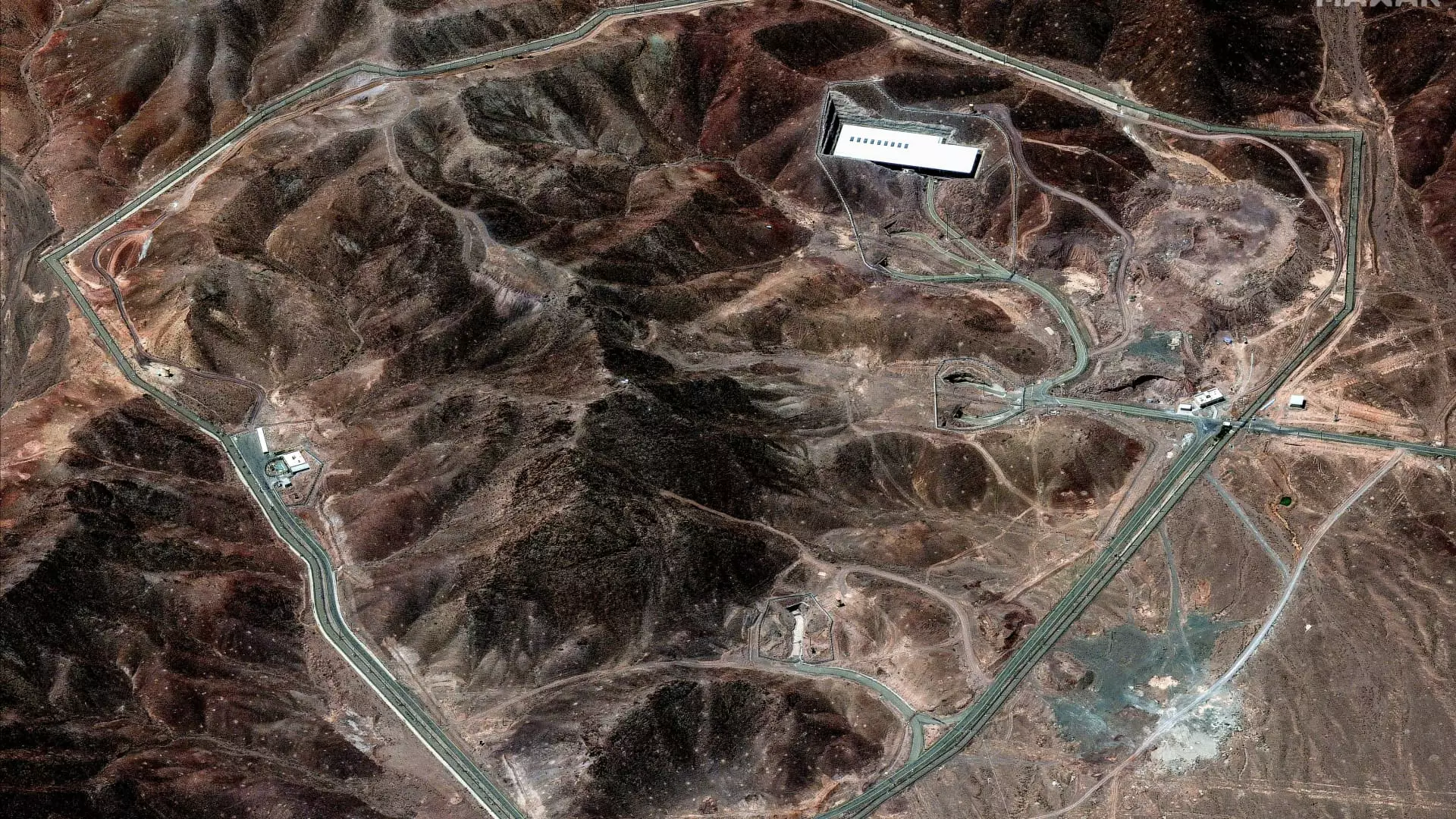In the chaotic landscape of international relations, the recent military actions against Iran’s Fordo nuclear facility by the United States epitomize a recurring pattern of hubris masked as national security. U.S. Senator Markwayne Mullin’s assertion that intelligence reports confirm no relocation of nuclear materials from this ostensibly “impenetrable” location displays an alarming level of self-assuredness. Mullin’s confidence echoes through the corridors of power: the belief that American military might can solve complex geopolitical dilemmas often borders on reckless.
The Fordo facility, renowned for its sophisticated construction deep beneath a mountain, was deemed a vital stronghold in Iran’s pursuit of nuclear capabilities. Yet, Mullin’s declaration suggests that the U.S. has unilaterally dictated the narrative, fabricating a sense of control over a spiraling situation. Such proclamations raise significant questions about the veracity of intelligence and the loud, unshakeable drumbeat of militaristic bravado. When leaders declare they have successfully “obliterated” a threat without acknowledging the nuanced realities on the ground, one must wonder what other truths are being obscured in the smoke of aerial bombardment.
Understanding the Complexity of the Situation
Mullin’s comments also reflect a notable misunderstanding of the intricate nature of geopolitics. The simplistic view that America can simply strike at will—destroying what it deems as threats—ignores the complex dynamics at play. The assumption that Iran would remain passive in the face of such aggression reveals a dangerous naïveté. To state, “we will finish the job,” suggests an overestimation of U.S. military omnipotence, dismissing potential retaliatory measures and broader regional ramifications that could emerge.
Moreover, the rhetoric of “terrorist” nations needs to be scrutinized within a context that recognizes the historical grievances that fuel conflict. The characterization of Iran, particularly in the U.S. consciousness, often overlooks the fact that this is a country with a deeply rooted sense of sovereignty and resilience. By framing military action purely as a means of eradication, the U.S. fails to acknowledge Iran’s potential responses—responses that could erupt into violent confrontations affecting not just the Middle East, but global stability.
The Overlooked Consequences of Military Action
As Senator Mullin spoke about the need for sustained engagement with allies, particularly Israel, a deeper implication surfaces: the prospect of endless war. Historically, military interventions have often led to protracted conflicts that burden not just the engaged nations but reverberate worldwide. The reckless enthusiasm for an airstrike strategy may lead to scenarios resembling Iraq or Afghanistan—quagmires where military victories are overshadowed by the complexities and realities of nation-building and civil unrest.
The strategic value of the U.S. committing to airstrikes in Iran remains questionable. While there may be superficial satisfaction in damaging nuclear capabilities, this approach largely fails to address the underlying motivations fueling Tehran’s quest for nuclear capability. By neglecting to engage diplomatically, the U.S. risks pushing Iran further into the arms of adversaries—potentially unifying factions against a perceived common enemy.
Political Implications and Global Perceptions
Domestically, the implications of unilateral military action can lead to significant political turmoil. Mullin’s insistence on bypassing Congressional authorization raises red flags about the erosion of democratic processes in foreign policy decisions. Such actions can undermine the trust of the electorate and provoke backlash from various political spheres, potentially destabilizing the current administration in the long run.
Globally, this bombastic approach towards Iran does not occur in a vacuum. Allies may view this aggression as a destabilizing factor in international law and diplomatic relations. By disregarding multilateral treaty frameworks and opting for military solutions, the U.S. risks losing credibility among its closest partners. Historically, partnerships are forged on the premise of mutual respect and dialogue, not through fear and intimidation.
In sum, the U.S. airstrikes against Iran’s Fordo facility may have resonated as decisive, but they reflect a perilous adherence to military solutions over diplomatic engagement. The complexity of international politics requires a nuanced approach, one that embraces dialogue and multi-layered strategies rather than a reliance on bombast and bravado. The stakes are far too high to navigate this treacherous course with myopic vision.

Leave a Reply